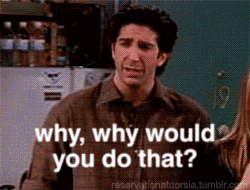
To be completely honest, most of us here can't think of a good reason anyone would want to do this. We've talked to our designers - including some who have extensive commuter experience with this area - and our construction staff ... we even asked a few pencil-pushers who know the area. Nobody could see why this would be a movement folks would want that badly.
Everyone we talked to say the same thing: "Why not just stay to the right and go through Leon Springs the old-fashioned way?"
Our area engineer overseeing the project even pointed out going the Old-Fashioned Way (our official term for going through Leon Springs now, thus the capitalization...) holds just one traffic signal. Using the new westbound frontage road and turning right means going through two signals. And, if the emails we get from residents in that area are any indication, going through traffic signals in this area is not a very fun experience to have. Adding an extra signal just seems like an odd thing to do.
But those were all opinions, and we're about delivering facts here. So, you want to know why - in engineering terms - we don't have a right-turn lane there? There are two reasons:
- Traffic engineering. The design intends to push all the traffic headed to Boerne Stage Road west of I-10 onto the new frontage road, where we've got two left-turn lanes to handle the heavy traffic. This was supposed to relieve the pressure on the Leon Springs area so folks headed through the intersection (and on to Aue Road, perhaps) could do so without fighting through the thousands of cars aiming for Boerne Stage Road. With two left turn lanes, by the way, we can push twice as many cars through a signal without having to mess with signal timing - a huge plus.
- Turn radius. That right-hand turn is pretty sharp, and we didn't have a ton of room to soften it up any. While it's fine for a commuter car - and even a Texas-sized pickup truck - to make that turn, larger vehicles just won't make it. Not without using other lanes to help, at least.

Of the two reasons, the first is obviously theoretical. It's based on where our planners thought drivers were trying to go as they navigated the intersection.
If, after a period of time, we see a clear demand for that right turn we can look into changing the signs - however, the turn radius is going to be the biggest reason that doesn't ever get done. We'll take a hard look at it, but don't expect to see the change any time soon.
Hopefully that clears things up a bit.
